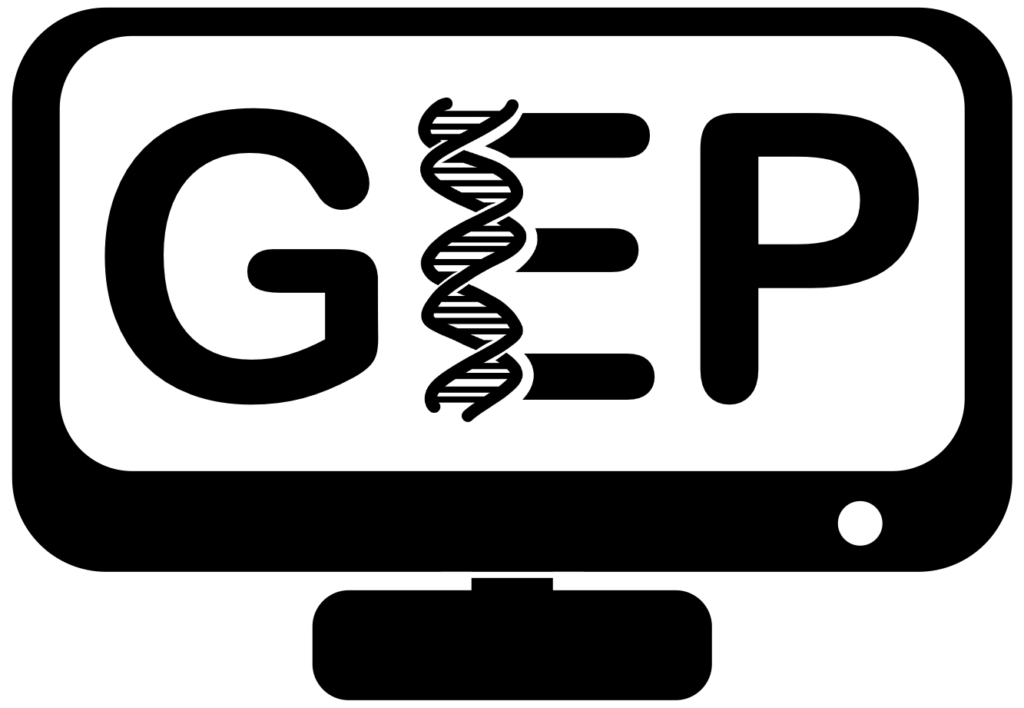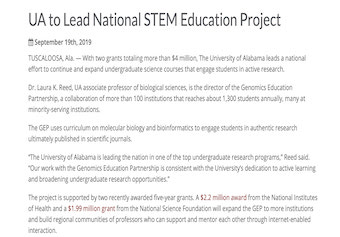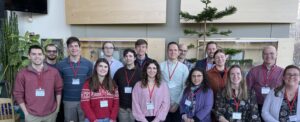The GEP was recently awarded two five-year grants— a $2.2 million award from the National Institutes of Health (NIH) and a $1.99 million grant from the National Science Foundation (NSF).
In April 2019, the GEP was awarded funding by the NIH (IPERT) to sustain and develop centralized support and regional training. A main focus of the IPERT grant is to increase faculty and student engagement in the GEP by leveraging the available regional clusters of participating GEP institutions (regional nodes). Each of the 15 regional nodes will offer several Regional Symposia and at least one training workshop. The Regional Symposia serve the dual functions of allowing undergraduates to present their work to other scientists, and faculty to learn, collaborate, mentor, and develop curricula. The node training workshops expand the timing and location options for GEP training, thereby increasing and diversifying participation while testing a new regional training format. A particular goal of these regional node activities is the recruitment and support of new members from Community Colleges and Minority Serving Institutions.
In October 2019, the GEP was awarded funding by the NSF (IUSE) to provide training and mentoring to faculty who are geographically isolated or have impediments to participating in scheduled face-to-face trainings. A main focus of the IUSE grant is to develop an online training, mentoring, and support system for new GEP faculty and also to diversify the scientific questions GEP can address. Broadening the scientific scope of GEP by increasing the number of scientific projects will motivate and recruit GEP faculty, boost students’ intellectual engagement, and expand GEP’s research impact.
The paired approaches of the IPERT and IUSE grants give GEP broader outreach and a unique opportunity to determine if a seemingly more economical online training strategy is actually sufficient to support implementation and persistence in the GEP.
To read the full article pictured above, visit the UA News Center.




